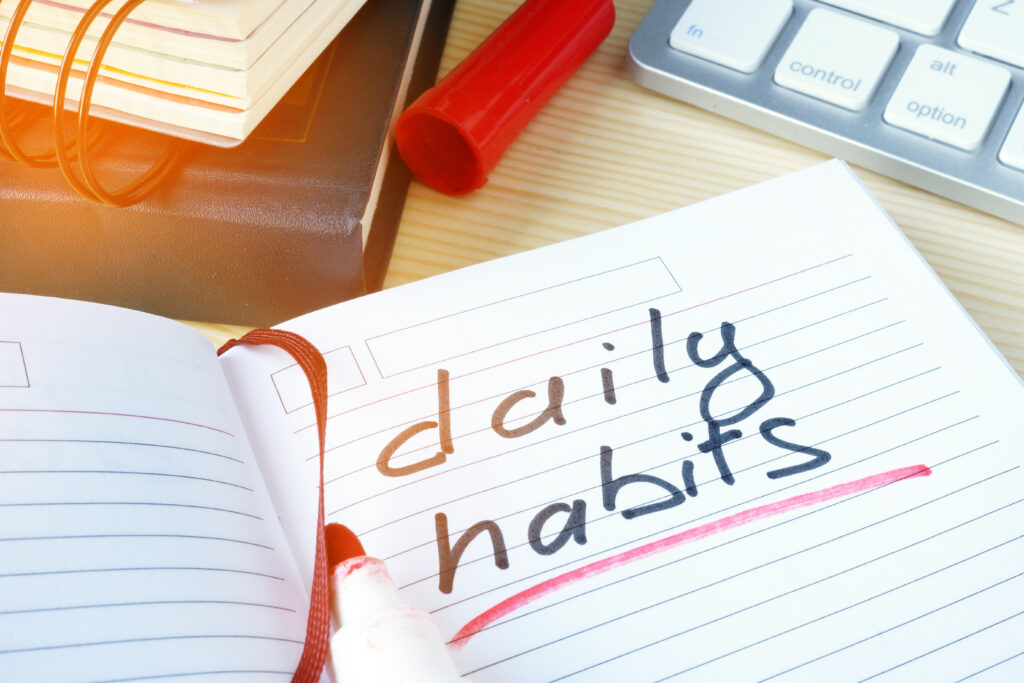A reflection on how our daily actions shape our identity and health.
Have you ever wondered what your habits say about you? If your habits could talk, what would they reveal about your values, your goals, your personality, and your well-being? Our habits are not just routines that we follow mindlessly, but rather powerful signals that communicate who we are and what we care about.
According to James Clear, the author of the best-selling book Atomic Habits, our habits are pieces of evidence that tell ourselves what we care about and what matters to us. He writes, “Every action you take is a vote for the type of person you wish to become. No single instance will transform your beliefs, but as the votes build up, so does the evidence of your new identity.” In other words, our habits are not only the result of our identity but also the cause of it. By changing our habits, we can change our self-image and our reality.
For example, suppose you have a habit of exercising regularly. In that case, you are not only improving your physical health, but also reinforcing your identity as someone who values fitness, discipline, and self-care. If you have a habit of reading books, you are not only expanding your knowledge, but also strengthening your identity as someone curious, intelligent, and open-minded. If you have a habit of meditating, you are not only reducing your stress, but also cultivating your identity as someone who is mindful, calm, and present.
On the other hand, if you have a habit of quitting on goals or procrastinating, you are not only letting yourself down but also confirming your identity as someone who lacks follow-through and is unreliable.
As you can see, our habits are not neutral or insignificant. They are powerful indicators of our identity and our health. They shape our self-esteem, our confidence, our relationships, and our happiness. They also influence how we perceive ourselves and how others see us and treat us. That is why it is so important to be mindful of our habits and to choose them wisely. By doing so, we can create a positive feedback loop that supports our growth and well-being.
So, how can we change our habits for the better? Here are some tips from James Clear that can help you build good habits and break bad ones:
- Start with small and easy actions that you can repeat consistently. For example, if you want to start exercising, start with 10 minutes a day, not an hour. If you want to start reading, start with one page a day, not a chapter. If you want to start meditating, start with one minute a day, not 20.
- Make your habits attractive and rewarding. If you want to exercise, pair it with something you enjoy, like listening to music or watching a show. If you want to read, choose a book that interests you and makes you curious. If you want to meditate, reward yourself with a treat or a compliment after you finish.
- Make your habits obvious and convenient. For example, if you want to exercise, put your workout clothes and shoes in a visible place. If you want to read, put your book on your bedside table or your desk. If you want to meditate, set a reminder on your phone, or use an app that guides you.
- Make your habits difficult and costly to break. For example, if you want to stop procrastinating, block your distractions, and set deadlines. If you want to stop complaining, impose a penalty on yourself or ask someone to hold you accountable.
By following these principles, you can create habits that serve you and your health, rather than sabotage you and your health. You can also create habits that reflect and enhance your identity, rather than diminish and undermine it. You can create habits that make you proud and happy, rather than ashamed and unhappy.
Remember, your habits are not just actions that you take. They are statements that you make. They are messages that you send. They are votes that you cast. They are pieces of evidence that tell yourself and the world what you care about, what matters to you, and who you are. So, choose your habits wisely and make them work for you, not against you. If your habits could talk, what would they say about you?
– Michelle




